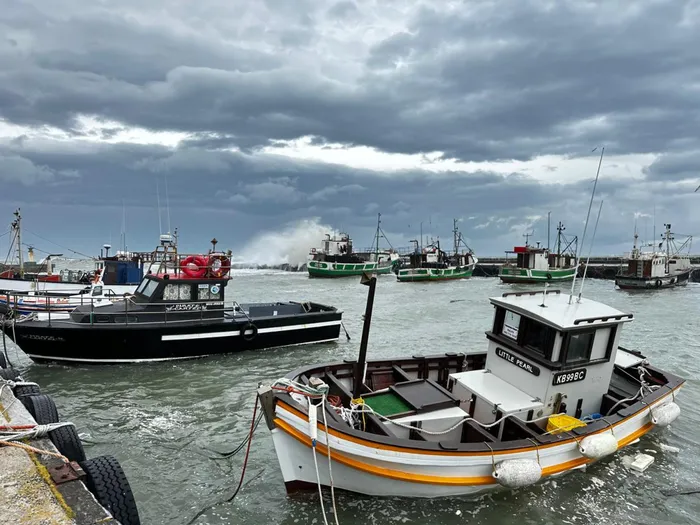Kalk Bay Festival celebrates fishing community

The Kalk Bay Heritage Festival, running from Friday October 25 to Sunday October 27, will include ocean-themed documentaries, live music, and the traditional Blessing of the Fleet ceremony. Picture Traci Kwaai
The Kalk Bay Heritage Festival, set to take place this month, will highlight the town’s fishing community and cultural heritage, says organiser Traci Kwaai.
Running from Friday October 25 to Sunday October 27, the event, according to Ms Kwaai, "is more than just a celebration".
"It’s a tribute to the generations of Kalk Bay fishers who have navigated both the seas and the challenges of marginalisation."
The festival, centred around Kalk Bay Harbour Road, will begin with a film festival on Friday evening.
“We’re starting with ocean-themed documentaries like Water is Water by Katherine Poggenpoel and Hluleka by Jamila Janna, which encourage community involvement in marine conservation,” said Ms Kwaai.
Another feature of the festival is Deep Connections, a short film by marine biologist Loyiso Dunga, which highlights South Africa’s coastal and marine cultural heritage and suggests that cultural values be considered in marine planning and decision-making.
Ms Kwaai has also interviewed Kalk Bay’s elders, documenting their experiences of growing up in the area, the forced removals under Apartheid and life in Kalk Bay in earlier years.
“I’m glad I did these interviews because now we can hear their voices and see family photos from those times,” she said.
These stories will be presented as a montage on Friday night.
Saturday will feature the launch of an augmented reality project as part of Ms Kwaai’s NGO, the Fisher Child Project, which reconnects local youth with their ancestral roots and the ocean by teaching them snorkelling and free diving.
"We’re creating jars of traditional preserves, like sour fig konfyt and jams etc. Using a phone app, visitors can scan a sticker on the jars to access historical photos and stories of old Kalk Bay," Ms Kwaai said.
“This picture journey will take participants through three areas of Kalk Bay - Die Land, Middle Dorp, and Die Dam - each enriched with imagery, soundscapes and memories of past residents. Children from the Fisher Child Project have also contributed poetry, which will play through the app as viewers explore the images.”
Saturday’s events will include live music and food stalls promoting Kalk Bay’s fishing culture.
“It’s not just about remembering the past, it’s about recognising our identity today,” said Ms Kwaai
The festival will conclude on Sunday with the traditional Blessing of the Fleet, a long-standing practice dating back to when snoek season provided income for local fishermen.
"In the past, during snoek season, all the boats would leave Kalk Bay Harbour and travel to Saldanha Bay," said Ms Kwaai. "From there, they would follow the migration of the snoek to Cape Point. The fishermen were away for about a month, and in the 1950s and 60s, they earned one rand per snoek. It was a time of abundance for the community.
“The Blessing of the Fleet brought together Catholic, Anglican, and Muslim communities to pray for the safety of the fishers and a successful season."
Although snoek season is no longer observed, Ms Kwaai said the ceremony remained a symbol of unity and tradition.